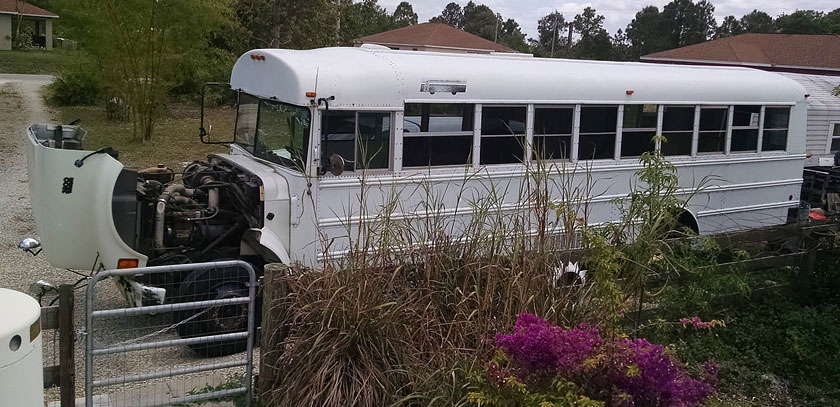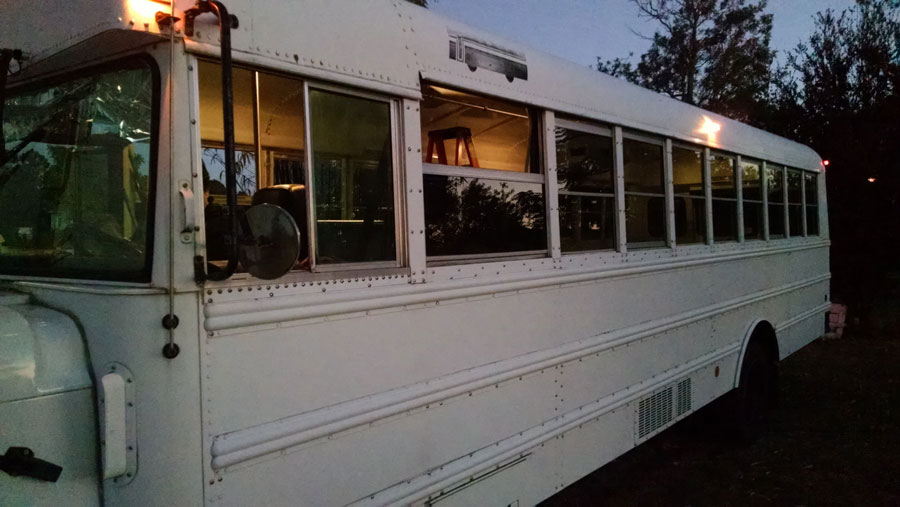What to Know Before Converting a Bus
3 Things to know before you convert a School bus to an RV!
No one will tell you these things. Once we got into converting a school bus we were amazed no one is talking about this stuff. There are three things you need to know before you decide to convert a used school bus into an RV. The hard part about converting a school bus is not the physical work, or the tools needed, or the skill. The really hard things are insurance, titling and registration and finally parts.
Insuring the Converted Bus
The internet is filled with blogs and YouTube channels devoted to converted school buses. If you read them and watch the videos they very rarely if ever mention insurance. It has been our experience that it is very difficult to get a converted school bus insured.
Let me clarify that. If your school bus is not 100% converted, it is very hard to get insurance. Every insurance company that we have talked to that will sell us coverage wants to see the completed bus before they will insure it.
Here is the rub, without insurance we can’t get the bus registered. Without insurance and a plate we can’t drive it. We can’t take it to a mechanic nor can we take it to a welder to get needed customization work done. This means we have to build a complete RV before we can take the bus on a test drive.
This can be a HUGE problem. If you drop the majority of your budget on the interior so you can get insurance, then on your first test drive you find the transmission is no good, you’re in deep black water.
Without being able to legally drive the bus it will be sitting in your driveway. This brings up the second problem.
Parking the Converted bus
Most communities zoned residential do not allow for commercial vehicles to be parked in your yard. This includes school buses. In Florida the solution is not too bad. All you have to do is change the title of the bus from “BUS” to “Motorhome”. Once the vehicle is titled as a motor home, regardless of what stage the conversion is in, the bus now falls under the umbrella of Recreational Vehicle.
Most residential zoning allows for storage of recreational vehicles on your property. Changing the legal status, whats on the title, of the bus will keep the county code enforcement off your back. But it will not make the neighbors happy. Some people are bus-haters.
Finding Parts for a Converted Bus
The problem of parts is not unique to a converted bus owner. All RV owners face the same thing. In a typical RV the drivetrain and frame will be made by one company (like Ford, Chevy, Toyota) and the coach part will be made by another. This means before you can replace a part you need to determine which manufacture you need to look to first.
The same is true for a converted bus. School buses are based on trucks, mostly they are International, Freightliner, GMC, Chevy, and Ford (to name a few). The actual school bus part is made by Thomas, Blue Bird, IC Bus, Collins Industries, and Micro Bird to name a few. Our bus in an International 3800 with a Thomas Bus body.
Things you might not think of as hard to get parts can be surprising. Windshield wiper arms for instance. We needed two new ones. We went to the local International Truck dealer and they said the wiper arms were made by Thomas. There is no local Thomas Bus dealer so we had to hunt the internet to find a supplier.
Advantage of Converting it Yourself
The advantage of building your own converted bus is that all the RV accessories you install can be locally sourced. You can use what you have at hand. On a commercially built RV you have no idea what was used in its guts. Tracking down a $20 item to fix a problem can be a real headache if you have no idea where the coach builder got the parts from in the first place.
If you choose to be the proud owner of a converted bus you need to keep these things in mind. None of them are show-stoppers. All can be overcome with a little knowledge and some hard work. Anyone thinking about converting a school bus to an RV should have both of these things in abundance anyway.



